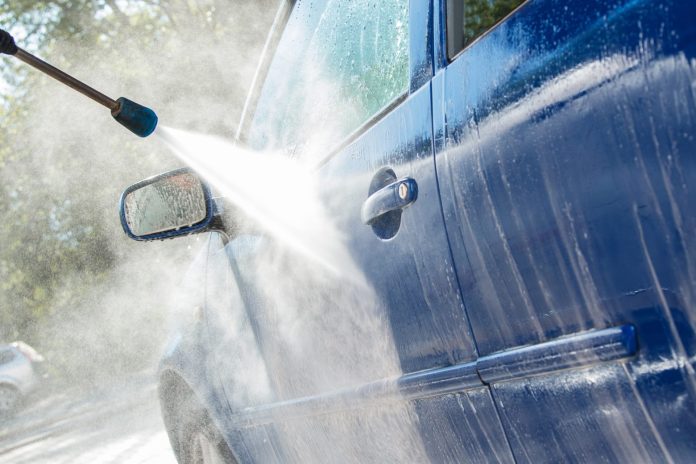|
Only have a minute? Listen instead
Getting your Trinity Audio player ready...
|
Two weeks after holding an extensive discussion on the subject of commercial car washes, McAllen officials unanimously approved new regulations that will limit where new ones can pop up.
With the decision, which came during a McAllen City Commission meeting on Monday, McAllen became the third city in the Rio Grande Valley to pass car wash restrictions amid continued water scarcity concerns.
Future commercial car washes will no longer be allowed to be less than one-half-mile apart from its neighbors. Further, new car wash developments will have to be more than 150 feet away from residential zones.
The new distance limitations will effectively prevent new car washes from being established in the heart of the city, explained McAllen Planning Director Edgar Garcia during a workshop just before Monday’s meeting.
“It basically pushes them north of Northgate (Lane) and south of Sarah (Avenue). And again, we’re bypassing all the minor arterial intersections,” Garcia said.
The City of Palms now joins Brownsville, which approved a 5-mile radius in March, and Edinburg, which imposed a 2-mile radius in September.
But McAllen took a slightly different tack in crafting its own ordinance.
City staffers are currently in the process of workshopping a new system for land use and development regulations called a “Unified Development Code,” or UDC.
The UDC addresses everything from residential, commercial and industrial land zoning, to the width of travel lanes on streets, to the angle at which streetlights face in order to minimize light pollution.
The proposed UDC also addresses the issue of commercial car washes.
Though city leaders have yet to give the UDC as a whole the green light, Monday’s decision on car washes involved aspects of the proposed UDC’s plan for commercial car washes.
In previous discussions with the city commission, staffers explained that they had explored how imposing 5-mile and 2-mile radiuses, like Brownsville and Edinburg, would impact future car washes in McAllen.
The city’s narrower east-to-west footprint compared to the other two cities would have made such limitations untenable — limiting future car washes to the U.S.-Mexico border in the south, and to the planned development community of Tres Lagos to the north.
So staff turned their attention to a half-mile limitation.
The proposed UDC, meanwhile, called for a hybridized regulation where car washes would be limited to 1,000 feet from the next nearest car wash, as well as a 150-foot distance from the nearest residential area.
Ultimately, city officials took a little from Column A and a little from Column B by merging the UDC’s recommendation for a minimum distance from residences with staff’s proposal for a half-mile minimum distance from other car washes.
Existing McAllen regulations already require commercial car washes to use water recycling systems, but such requirements were new to Brownsville and Edinburg, where officials noted continued water scarcity as a concern.
Currently, McAllen is home to 36 commercial car washes, Brownsville to 34, Harlingen to about 22, and 16 exist in Edinburg.
McAllen’s new ordinance will not apply to the kinds of singular automatic car washes that are seen at gas stations or grocery stores. Nor will it apply to two car wash developments that are currently in the works.
“We do currently have one that was permitted this last week, and one that is under review for permitting, which would not be subject to this ordinance,” Assistant City Manager Michelle Rivera said.
McAllen won’t be the last municipality to mull the issue, however.
This week, officials in Harlingen, the unofficial “car wash capital of the Valley,” began revisting the idea of imposing similar restrictions six months after initially voting down a car wash ordinance.




